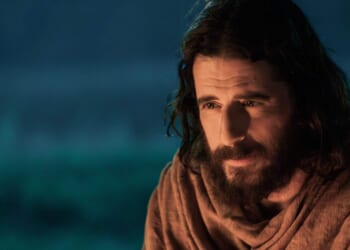This week is a heavy one for many of us Gen Xers and for all the fans of Malcolm-Jamal Warner. We’ve lost a real one to a tragic drowning in Costa Rica. Malcolm-Jamal, known to many as Theo from “The Cosby Show,” was more than just a television star. He was a symbol of hope, perseverance, and representation. As a proud member of the generation that grew up watching that show, I want to take a moment to honor his life and reflect on what he meant to us.
Growing up, “The Cosby Show” was more than entertainment. It was a beacon of light showing that minority families could be successful, loving, and full of integrity. It broke barriers and challenged stereotypes. We saw a family that was relatable, real, and aspirational. Cliff and Clair Huxtable, along with their children, especially Theo, became characters we looked up to. They showed us that black excellence was possible in every aspect of life.
Malcolm-Jamal’s portrayal of Theo was deeply meaningful to me. As a young boy, I saw myself in Theo. His relationship with his father Cliff was a reflection of what I longed for in my own life: a bond built on love, respect, and honest communication. Watching Theo navigate his world gave me hope. It showed me that even in a society that often tried to put us in a box, we could still stand tall and be proud of who we were.
During the late 1980s and early ‘90s, black culture was going through a shift. There was a lot of pressure on black boys to conform to stereotypes of toughness and gangsta culture. That was not my reality. I grew up in a two-parent home with a father who was a vice president at a bank and a minister. My parents raised me with strong morals and a faith-based foundation. Yet, there was an unspoken pressure to fit into a different mold, one that didn’t match my true identity.
“The Cosby Show” was a sanctuary for me. Watching Theo’s relationship with his dad showed me that it was okay to be respectful, intelligent, and ambitious. Theo and Cliff’s back-and-forth, their disagreements, and their moments of understanding mirrored my own experiences. It was a reminder that family is about love, patience, and sometimes compromise. That show helped me learn how to relate to my peers, how to act at school and church functions, and how to stand up for myself with confidence.
I recently read that Malcolm-Jamal was bothered by how people called Theo “corny” or not realistic. He shared that someone even called him “America’s favorite white black boy.” That phrase haunted him because it implied he didn’t fit the stereotypical mold of what “black” boys were supposed to be. I find this interesting because today I hear similar words in real life. When you come from a successful, two-parent household, folks sometimes call your family “corny” or accuse you of “selling out.” It’s disheartening because those labels dismiss the values of hard work, faith, and integrity.
Seeing Theo handle life with dignity on the screen gave me a pathway to be comfortable in my own skin. Malcolm-Jamal’s portrayal showed us that you could be smart, respectful, and proud of who you are. I believe we didn’t celebrate him enough for that. His role helped shape a generation and challenged harmful stereotypes. Unfortunately, the lack of recognition for his work has contributed to the moral decline we see today in some parts of black culture.
So, I want to thank Malcolm-Jamal Warner for his life and legacy. Thank you for taking on Theo’s role and living out a story that resonated with so many of us. Thank you for showing up as a real-life example of integrity and grace. Your work continues to inspire and uplift. Rest in peace, Malcolm-Jamal. We honor you and the impact you made on all of us.















